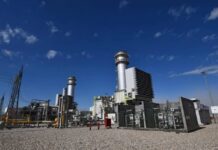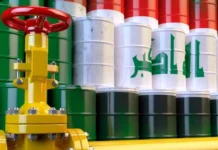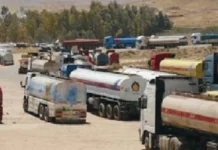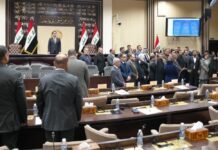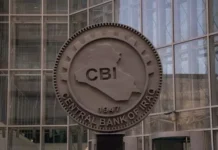CandyKisses: Revealing the most prominent points of contention over the oil law
Information / Baghdad.The parliamentary oil, gas and natural resources committee revealed on Saturday seven points of contention between the region and the center in the draft oil and gas law.
Committee member Ali Al-Mashkour told Al-Maalouma that “the oil and gas law faces 7 controversial points, most notably the region’s demand for the right to veto decisions from the Oil Council, and this matter cannot be accepted.”
He added that “there is a real intention in Baghdad to clear the differences between the region and the center on the points of contention over the oil and gas law,” and pointed out that “the other point of contention is the marketing mechanism and whether It is done through SUMO or through the region, as well as financial revenues.”
Tishwash: US Troops to Stay in Syria and Iraq but Perhaps Not for Long
In recent weeks, there have been meetings in Washington and in Baghdad about the presence in Iraq and Syria of US troops, whose official mandate is to aid local forces against remnants of the so-called Islamic State (IS).
These meetings come following the post-October 7 surge of attacks on US forces in the region by Iran-backed Shia militias seeking to take advantage of the Israel-Hamas war and Arab public anger over unconditional US support for Israel. The Biden administration does not want to be seen as “cutting and running,” as that would show these militias and their patron in Tehran that they can drive the United States out of the Middle East. The strong US military response earlier in February following a January 28 Iraqi militia drone strike killed three American servicemembers at a US base in Jordan has temporarily stopped such attacks. But the ongoing discussions in the US and Iraqi capitals suggest that Washington may be planning for an eventual withdrawal.
Since 2013 the United States has partnered with the Syrian Kurds to combat IS in the northeastern part of the country. US military commanders found that these Kurds, mostly associated with the People’s Protection Units (YPG), were experienced fighters willing to sacrifice to rid their area of the IS presence. The fact that these Kurds incurred more than 10,000 casualties in the counter-IS campaign earned them the respect of the US military. Given that large parts of northeastern Syria are inhabited by Arab Sunni tribes, however, the United States worked with the Syrian Kurds to bring ethnic Arabs into their militia force, thereby creating the Syrian Democratic Forces (SDF).
This force is the main protector of the Kurdish-led Autonomous Administration of North and East Syria (AANES), formerly called Rojava, which means “west” in the Syrian Kurdish dialect and refers to what Syrian Kurds see as the western part of traditional Kurdistan.
Turkish incursion further south into Syria.
But Reassessing Syria Policy
Unbeknownst to Syrian Kurds at the time, on January 18, 2024, the National Security Council held an Interagency Policy Council meeting about the future of the US troop presence in northeastern Syria. At the working-level meeting, which was held at the behest of the Department of Defense, the Pentagon reportedly floated the idea that the Syrian Kurds should partner with the Syrian regime in its fight against IS. Although no decision was made, a follow-on senior level meeting is supposed to take place soon. That the January 18 meeting happened at all indicates that elements in the US government are looking for ways to remove US forces from Syria.
When apprised of the meeting by a reporter, SDF commander Mazlum Abdi said he was “stunned and unable to fathom the reasoning behind this rotten plan.” He emphasized that IS controls swaths of territory to the west of the Euphrates River on the “regime side” and maintains a presence on the road to Damascus. Kobane added that the Syrian regime refuses “any meaningful dialogue” and opposes a “democratic future of Syria.”
He also said that Syrian government forces are incapable of defending the territories under its control against IS, “let alone ours.” Indeed, one American think tank expert said he had been approached by several US officials to ring the “alarm bells” about a potential US withdrawal from Syria because it is “not being properly thought through.”
However, it is unlikely that the Biden administration would support a removal of US troops from northeastern Syria before the November presidential election, since the optics of the United States abandoning the Syrian Kurds could have shades of the disastrous 2021 American withdrawal from Afghanistan. But it is possible that Biden could remove troops after the election. If Trump were to return to the presidency, such a withdrawal Is almost certain.
Why the Biden administration may want to remove troops from Syria is speculation at this point but may be tied to several factors. One factor may be simply that US troops and bases have become convenient targets for pro-Iran militias, and the specter of a wider war between the United States and Iran makes their presence even more risky.
Second, the Biden administration may be inclined to curry favor with Turkey, with a US withdrawal from Syria perhaps serving as a quid pro quo for Ankara’s recent decision to agree to admit Sweden to NATO.
Third, the Biden administration believes the Assad regime is likely to remain in power for the foreseeable future and thus, if an indefinite US military presence in Syria is not in the cards, that the Syrian Kurds need to reach some type of accommodation with the regime. In other words, a Syrian Kurdish rapprochement with Damascus may be the least unpalatable option for the Kurds. Turkey, Iran, and Russia, which all have forces in Syria, oppose Syrian Kurdish autonomy. While the Assad regime is not in favor of autonomy either, such thinking goes, it may not be in a strong enough position to take on the SDF militarily and thus may reach an accommodation with it.
States. For all these reasons, there have been no militia attacks on US military personnel or bases in Iraq and Syria since February 4, though the SDF claimed that a pro-Iranian militia force hit one of its bases in Syria on February 5, killing six Kurds.
Indefinitely, but it must conduct any withdrawal judiciously. Whether it likes it or not, the United States has a moral obligation to the Syrian Kurds, to whom it owes much in the fight against IS. Saying that they should simply make an accommodation with the Assad regime is inadequate and irresponsible.
Washington should also make clear to the Turkish government that a US withdrawal should not be a signal for Ankara to move further south and destroy the AANES entity. In Iraq, US and Iraqi officials should come to a realistic understanding of when the Iraqi military will no longer need US training to take on IS cells without US support. In other words, military capabilities should be the driving force behind any withdrawal decision, though politics will almost assuredly intervene.
(Arab Center Washington)
Disclaimer: the views expressed in this report do not necessarily reflect the official standpoint of Shafaq News Agency. link
Courtesy of Dinar Guru: https://www.dinarguru.com/
Militia Man Iraq’s natural resources to stimulate growth is off the charts. They’re right there underneath just a few countries… United States, Saudi Arabia…When it comes to valuation they’re going to have to value the currency at some point in time to a Real Effective Exchange Rate (REER)…
Frank26 You know the qualifications to be part of the WTO. Is it to have value to their currency? No. It is to have a currency with no restrictions. Therefor if there are no restrictions on their currency, Hey, CBI, go crazy!
*************
The $900 BILLION Banking Crisis Threatening U.S. Banks, Debt Is Skyrocketing
Atlantis Report: 2-24-2024
With a staggering 900 billion dollars in commercial real estate debt set to mature this year and interest rates remaining stubbornly high, the stage is set for a perfect storm that could shake the foundations of the banking industry.
As the Federal Reserve grapples with the delicate balance of controlling inflation while avoiding a downturn, experts warn of an impending crisis that could rival the magnitude of the 2008 financial meltdown.
Against this backdrop of uncertainty, financial analysts and regulators are sounding the alarm, highlighting the vulnerabilities that have left banks exposed to mounting losses and delinquencies.


